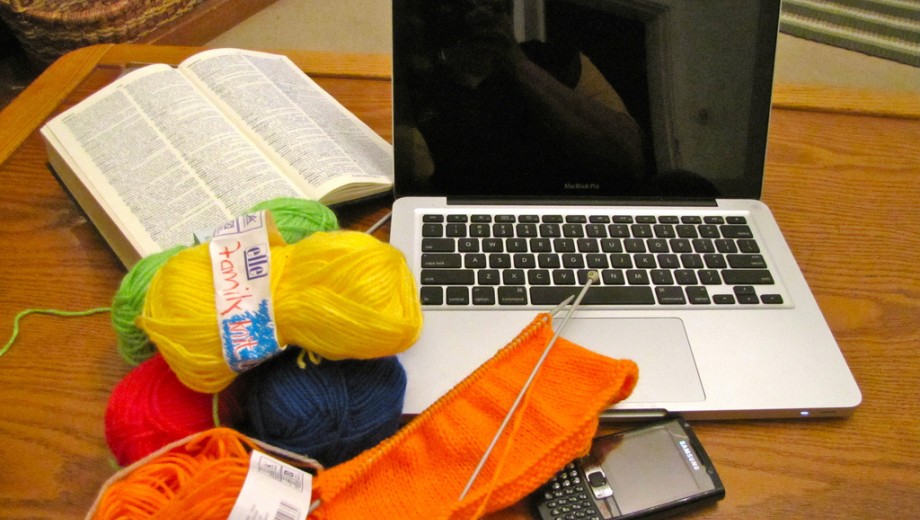The first job Matt Percy, AM’98, had after completing the Master of Arts Program in the Humanities (MAPH) was a corporate strategy position at Monsanto. There he honed the holistic intellectual approach and empirical analysis skills he had developed at UChicago while adding professional experience to his resume. How did he land it?
“I managed to talk myself into a job that I probably had no business being in,” he says. “Nobody’s ever been a perfect fit for a job. It’s about getting yourself out there and selling yourself right: knowing who you are and what you’re trying to accomplish. If you’re writing a paper, the task is really no different.”
Percy and other grads offered more advice for job seekers.
Cast your net widely.
Jeremy Galen, AM’07, who had no previous interest in technology, got his first tech job—a part-time position while he was in the MAPH program—by tearing a phone number from the bottom of a sheet on a Regenstein Library bulletin board.
Linguistics graduate Jackie Reber, AM’07, PhD’11, also advises students to work part-time while getting their degree, if possible.
“Look into avenues that you might not necessarily think would work out,” she says. “I wasn’t really limiting my search to any particular field. Doing something where you are working in a corporate or other professional environment shows that you’re at least able to do that.”
“Try not to be too rigid,” says Mary Carello Senic, AM’08, also a MAPH graduate. “Sometimes your path may surprise you.”
Just because tech companies offer the comforts of home doesn’t mean you have to live at the office.
Reber came back to work in January after three months of maternity leave with her first child. She noted that several of her coworkers, men and women alike, have taken time off for families without any hassle. “With smaller tech companies, the hours are relatively flexible,” she says. “We’re able to work from home when we want to.”
It doesn’t hurt to have “traditional” tech skills.
After finishing his oral exams, Jon Aronoff, AM’95, who knew computer programming, got a job as a programmer for Computer Sciences Corporation while deciding whether to write his dissertation and complete his PhD in English. Working there, he learned about “this whole little industry in IT research.”
From Computer Sciences Corporation, he moved into a job with Strategy Research Group, because, he says, “I was effectively able to make the case that I knew enough of the tech side, and I knew how to do research.” Aronoff stayed in the sector and now works for the Research Board.
Your research experience can help the team.
Individual scholarship and research do not necessarily lend themselves to the intense teamwork that is typical of the tech sector in general and start-ups in particular.
In humanities graduate work, says Percy, “you’ve got this monk-like solitude going on.” He gained collaborative experience in business school but appreciates that humanities research taught him to examine all facets of a problem and gather evidence to support his conclusions. “You’re going to see things in a different way than someone who had a strictly finance background, and that’s really important in a team environment.”

